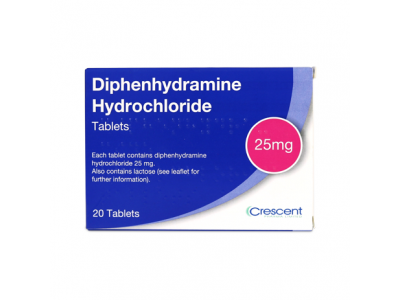The recommended dosage of diphenhydramine (Benadryl), an antihistamine commonly used for allergies, insomnia, and motion sickness, depends on several factors including age, the condition being treated, and individual response to the medication. Here are general guidelines for the dosage of diphenhydramine:
For Allergies or Hay Fever:
- Adults and children 12 years and older: 25 to 50 mg every 4 to 6 hours as needed, not exceeding 300 mg per day.
- Children 6 to 12 years old: 12.5 to 25 mg every 4 to 6 hours as needed, not exceeding 150 mg per day.
For Insomnia:
- Adults: 50 mg 30 minutes before bedtime as needed for sleep.
- Elderly patients or those with reduced liver or kidney function may require lower doses due to increased sensitivity to the medication's sedative effects.
For Motion Sickness:
- Adults and children 12 years and older: 25 to 50 mg every 4 to 6 hours as needed, not exceeding 300 mg per day.
- Children 6 to 12 years old: 12.5 to 25 mg every 4 to 6 hours as needed, not exceeding 150 mg per day.
It's essential to follow the dosing instructions provided by the healthcare provider or on the medication label. Taking more than the recommended dose can lead to overdose symptoms, including confusion, blurred vision, dry mouth, difficulty urinating, and seizures in severe cases. In case of overdose, medical attention should be sought immediately.
Diphenhydramine should not be used for prolonged periods without medical supervision, especially for sleep aid purposes, as tolerance can develop, and it may not remain effective. Additionally, it can interact with other medications and may not be suitable for individuals with certain medical conditions. Always consult a healthcare provider before using diphenhydramine, especially in children, elderly individuals, or those with chronic health issues.
